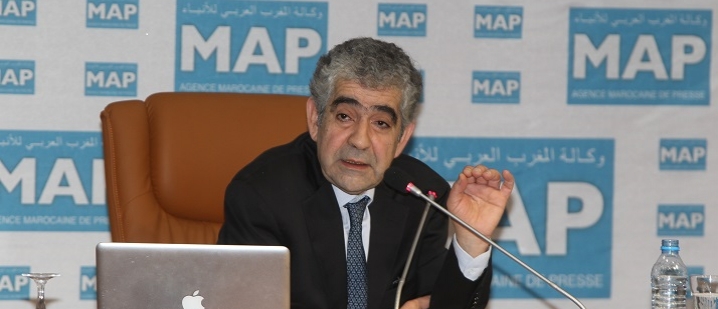Morocco’s commitment to honor human rights, voluntary choice further confirmed through contribution of all stakeholders

CNDH Chairman, Mr. Driss El Yazami, was invited on March 25, 2014 to speak to the Forum of the Maghreb Press Agency (MAP) on the achievements and the challenges of human rights in Morocco.
Mr. El Yazami indicated that Morocco voluntary chose to honor human rights and that this choice was further confirmed through the contribution of all stakeholders. He shed light on the provisions of the Moroccan Supreme Law which provides for constitutional safeguards for civil and political rights, gender equality, the rights of vulnerable groups, fair trials, the independence of the judiciary, presumption of innocence, the right to challenge the unconstitutionality of a law, etc.
The Constitution, he added, also provides for a new institutional framework. Under the Supreme Law, he explained, Parliament isthe sole legislator, the judiciary is independent, the King is the supreme arbitrator for institutions and the guarantor of respect for human rights and freedoms and the international commitments of Morocco, not to mention the new national governance and human rights institutions and participatory democracy, provided for in the Constitution.
Mr. El Yazami highlighted the interactivity of Morocco with the treaty bodies (ratification of conventions, invitations to special rapporteurs, etc.). He shed light on seven major reform challenges that Morocco needs to tackle to consolidate the constitutional gains. The CNDH, he explained, draft or is drafting memorandums to contribute to the debate on these reforms, namely parity, which is central for democracy, the reform of the judiciary (this entails amending/adopting several laws on military justice, the High Council of the Judiciary, the statutes of judges, the Constitutional Court, the exception of unconstitutionality, and the pardon procedure), freedom of the press and access to information, public freedoms, children’s rights and the rights of persons with disabilities.
Harmonizing public policies on human rights is another important challenge, Mr. El Yazami said, underlining the importance of the National Plan of Action on Democracy and Human Rights and the Citizenship Platform for the Promotion of the Culture of Human Rights.






















